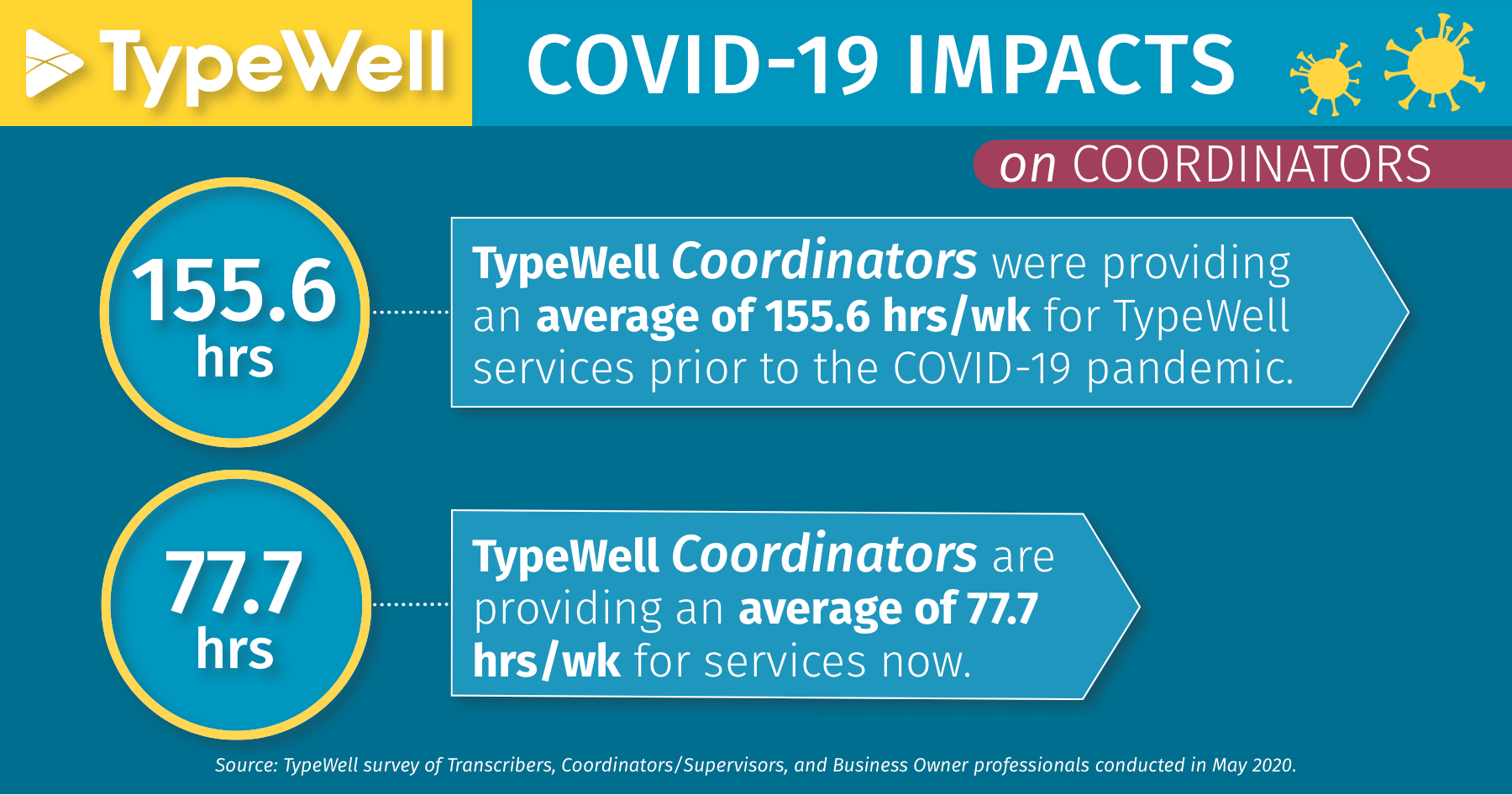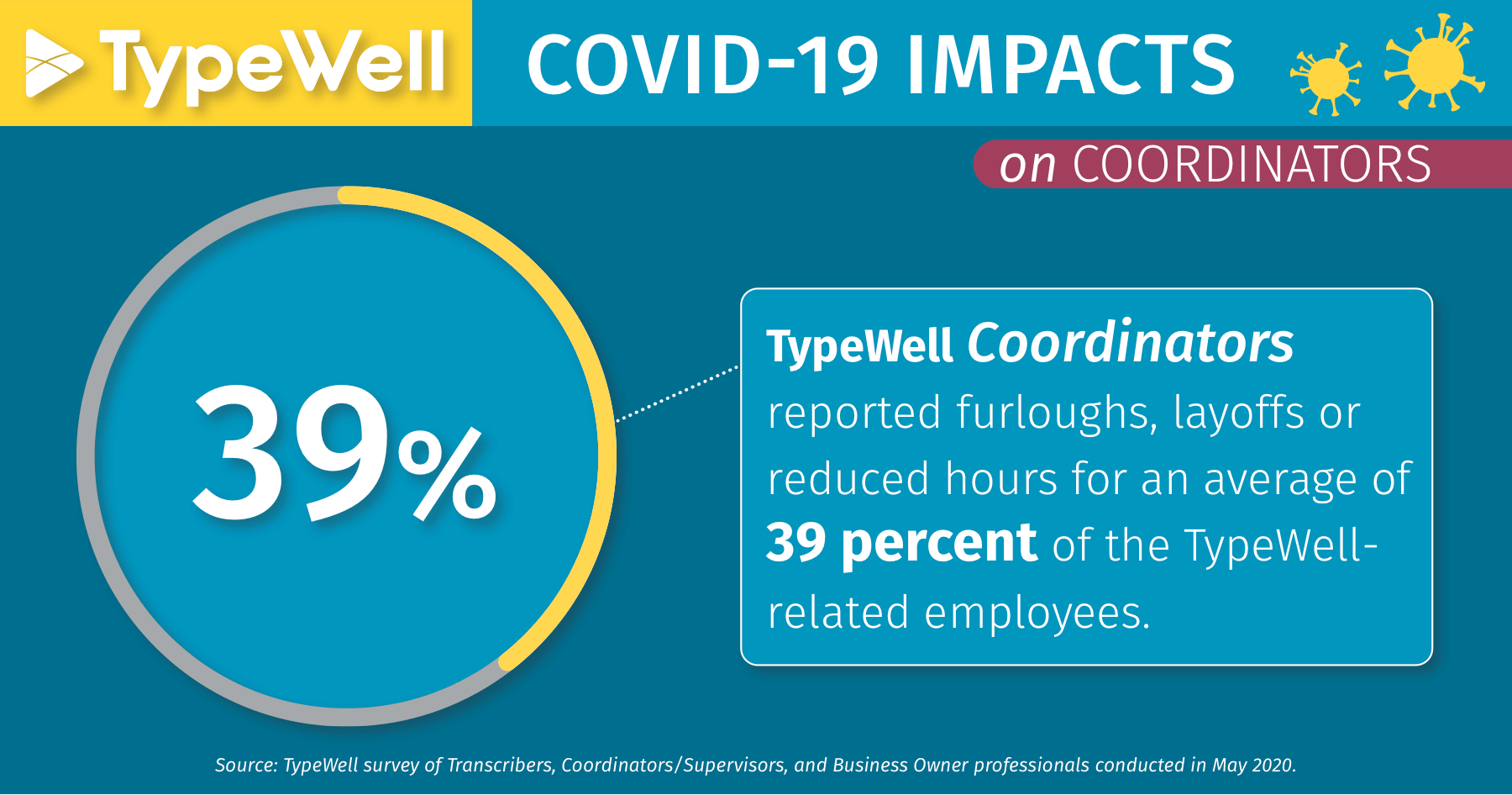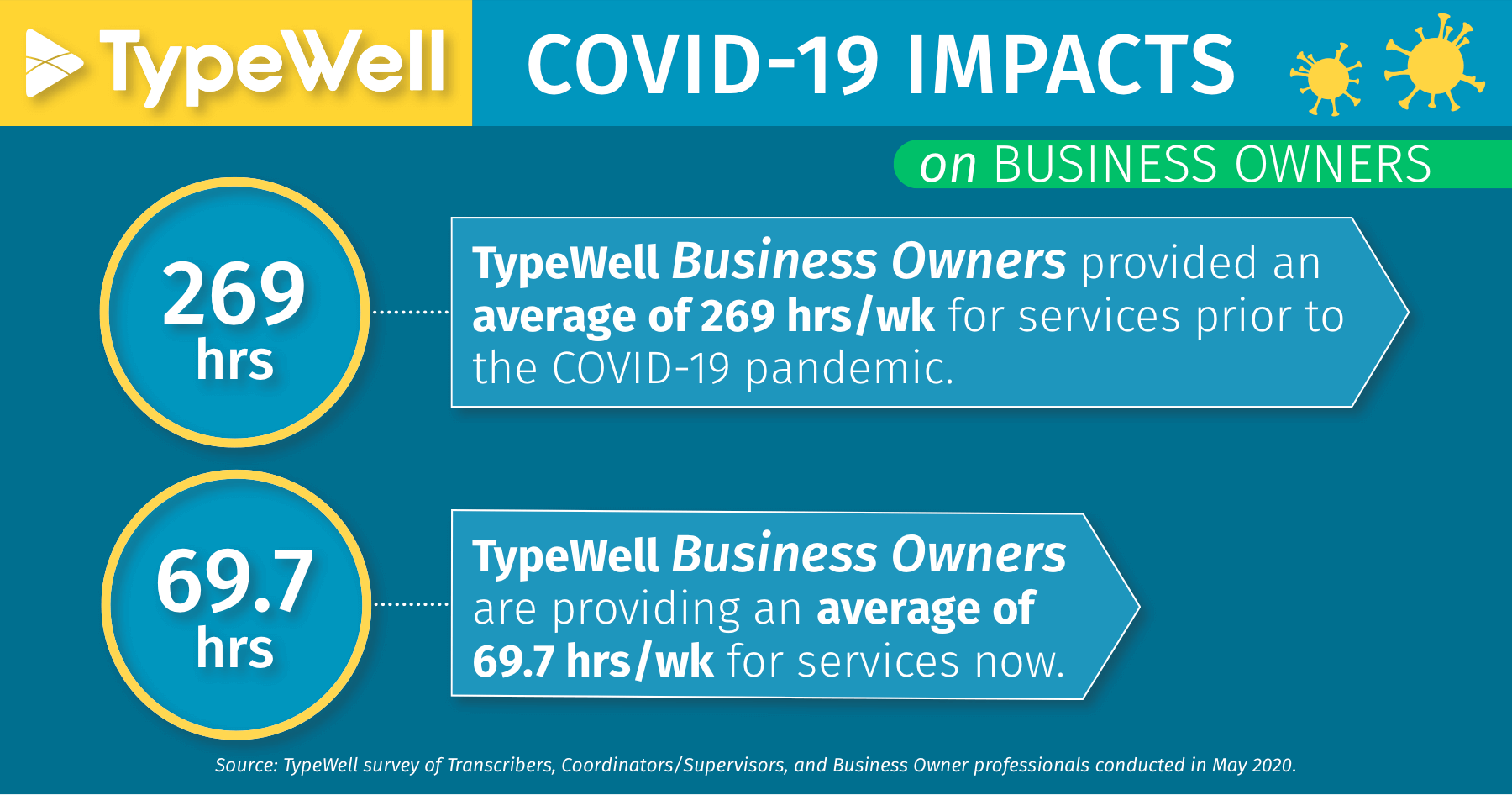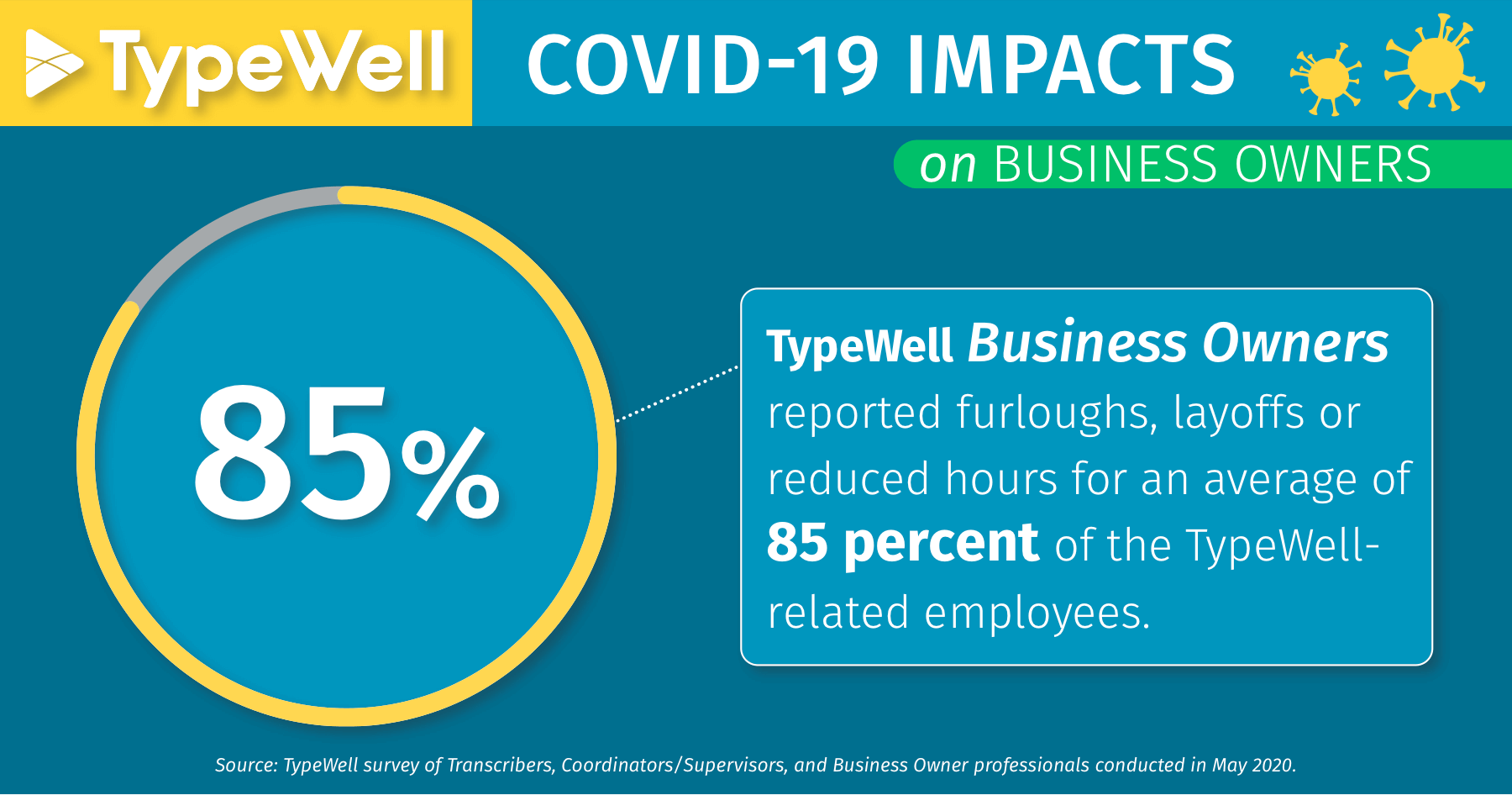
In our last post, we shared the responses we received from TypeWell transcribers about their experiences working (and losing work) during the pandemic. We also surveyed the impacts of COVID on Disability Service Coordinators who oversee, schedule, and coordinate TypeWell services; and small business owners who run companies or agencies that contract with schools to provide TypeWell services.
While there has been a lot of media coverage around the struggles that teachers and students face in transitioning to online instruction, the comments we received below really highlight the daunting task of making those classes accessible. Accessibility professionals tend to work in a “reactive” mode, adjusting on-the-fly to decisions made by students, faculty, and administrators. Those decisions affect everything from scheduling to technology to meeting format.
“The initial change to online was tough as professors kept changing their online format and were slow to communicate their plans with me. I often felt that as soon as we established services we would need to change strategies based on the professors’ new plans. I felt guilty taking away remote work due to professors moving away from synchronous lectures the closer we got to the online launch.”
“We had to change our service model mid-semester and were able to do it successfully. We’re proud of that fact.”
“It’s been difficult making the adjustment to working remotely. Contacting all of the instructors who would have transcribers in their classes was daunting and in some cases, intimidating. A huge learning curve overall.”
“It’s been challenging having to learn the different platforms (WebEx, Zoom, Blackboard Collaborate, etc.), and making sure the transcribers have the access they need in order to provide services. However, it’s also been a good experience, as it’s allowed us to expand the services we provide and how we provide those services. This has shown us how flexible (and talented) the transcribers we employ are, and if services continue in this fashion come the fall semester, we’ll be ready!”
“TypeWell has certainly been our best option for providing our students with access to what is being said and streamed.”
As advocates—for both students and captionists—Disability Service Coordinators shared their disappointment and frustration as some students’ needs were not met, and service provision sometimes failed to keep up with the rapid transition to online learning:
“It has been difficult and frustrating when there are not enough hours of transcribing in order to support the different students, and in getting teachers and administrators to understand how much harder it is for a DHH student to ‘hear’ via a computer.”
“College and University Disability Services offices are not providing accommodations to students, and students don’t know how to advocate for themselves to get services that could be provided remotely.”
“Overall tech challenges and lack of access for students and employees.”
“Please emphasize that auto-captions are not adequate for Deaf and Hard of Hearing students!”
“As things progress, I’m unsure what to do about my TypeWell team. If classes resume I know I will need to hire and train new people but if classes don’t resume then I will not have the hours to offer. The times are very unsure. Do I spend the money to get people trained to work in classes (which tends to be the student preference) but who may not have the hours available, or do I work with remote agencies?”
On a more personal-relational level, service coordinators reported a range of experiences that nearly everyone can relate to in the age of COVID-19:
“Feelings of isolation, lack of community.”
“Hard to not have interactions with others.”
“The transition has been less stressful than I thought. The university has supported work from home measures.”
“Mostly a lot of sadness for the students and transcribers. Feeling hopeful that there will be some sort of normalcy next semester, whether that be classes back in-person or more structure surrounding remote classes.”
While we didn’t receive many survey responses from small business owners, our one-on-one conversations with colleagues have shown that their businesses took a big hit initially, but that they’re rebuilding and seeing an influx of new customers from different sectors.
“Massive reduction in hours available for employees and contractors.”
“Devastated when schools stopped classes; gradually rebuilding, largely with webinar clients.”
At TypeWell, our experience was similar: We initially lost most of our contracts for real-time services, but we slowly regained business from those customers and have been receiving inquiries from new clients: museums, nonprofits, arts organizations, professional organizations, conference organizers, schools, and parents of DHH students.
We’re spending a lot of time on the phone with new clients, educating them about speech-to-text services, and figuring out which technology solutions will work best for them. And, like some of our other agency colleagues have lamented, we are spending much more time than usual providing technical support to our clients as they navigate and adapt to new technology and videoconferencing platforms.
It’s clear that Disability Service Coordinators and entrepreneurs will not experience “business as usual” for the foreseeable future. The impacts of COVID on service coordinators and businesses are clearly felt across the board. Staying nimble—and patient—will be the key to successfully navigating the coming school year.





